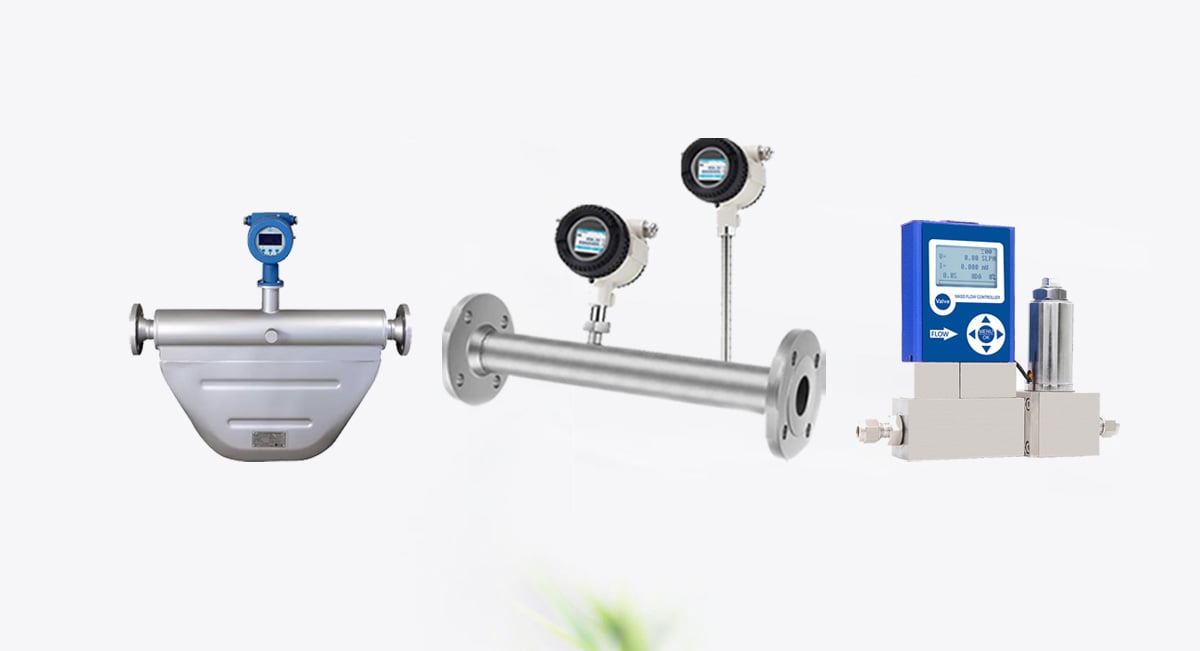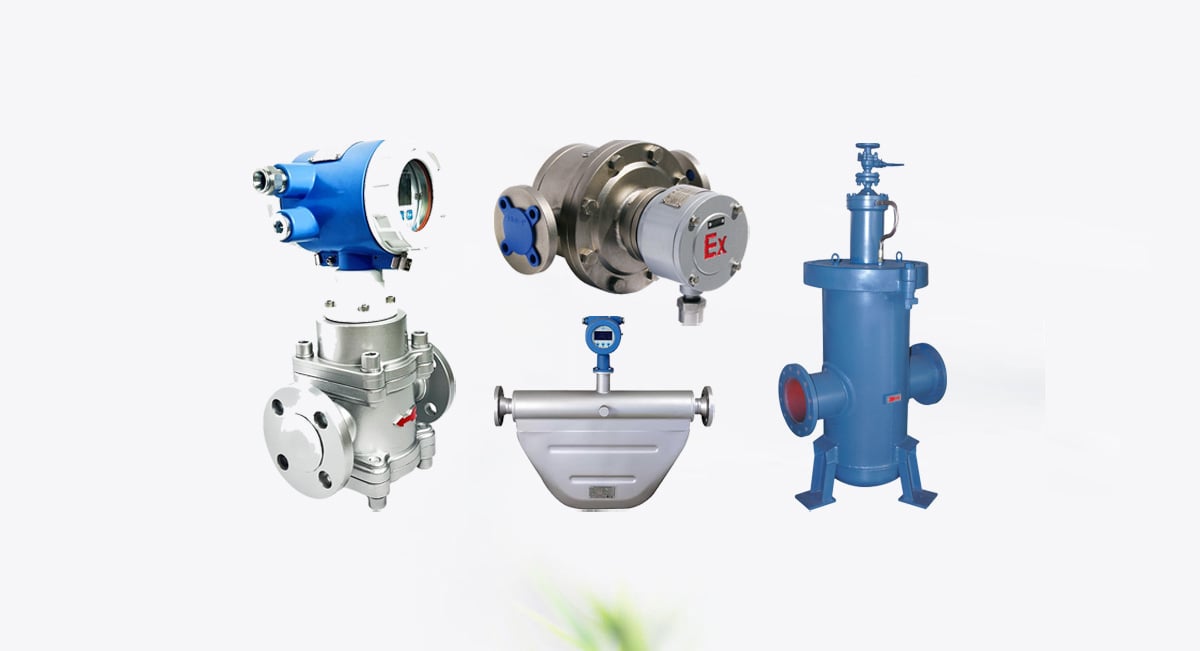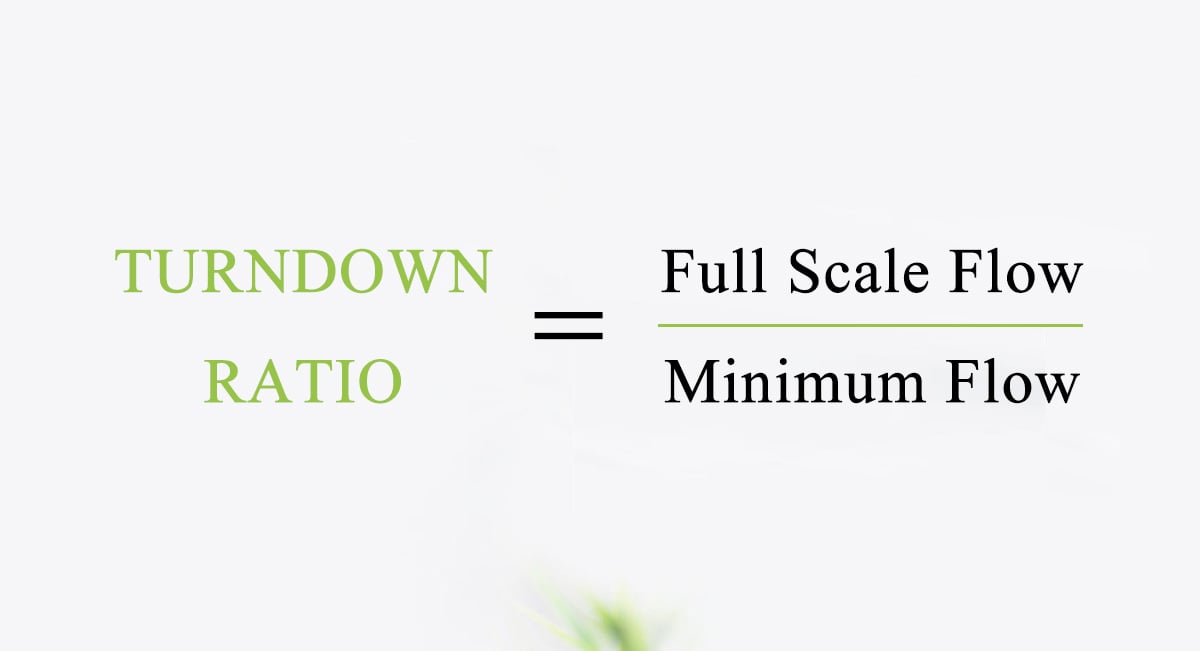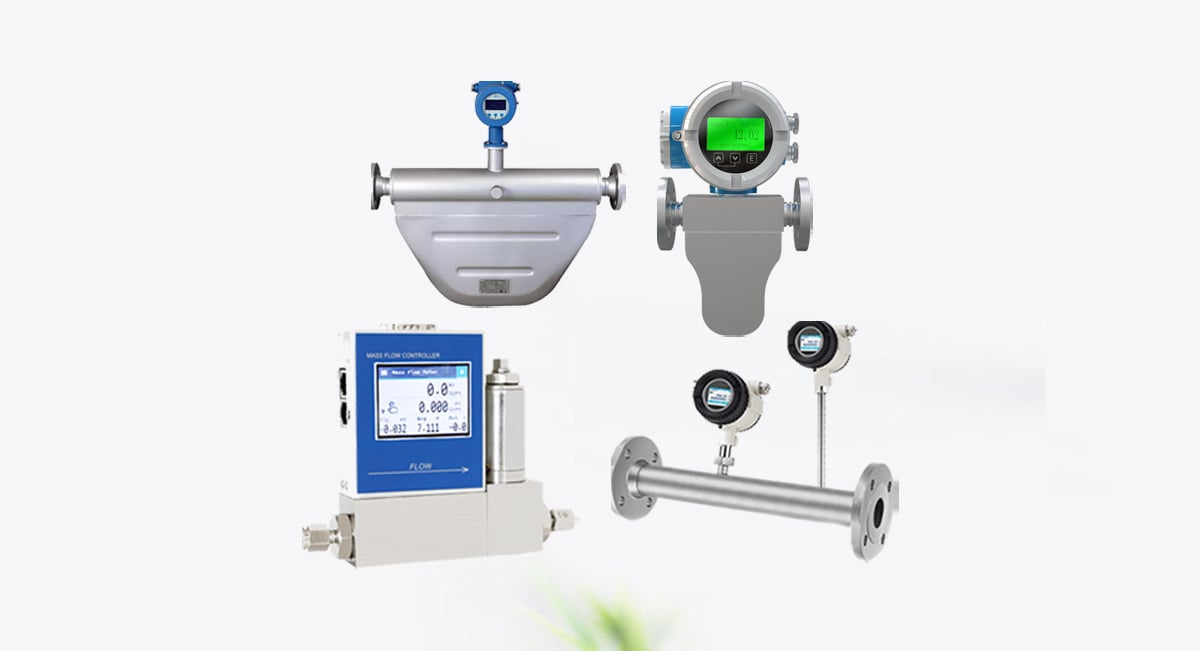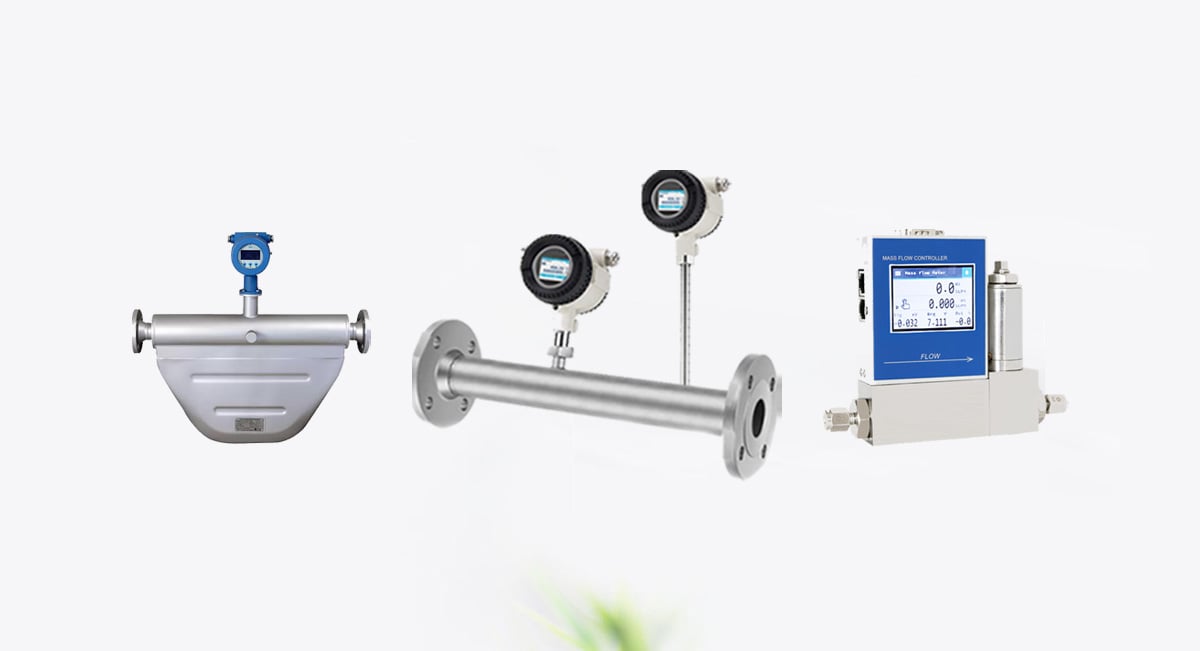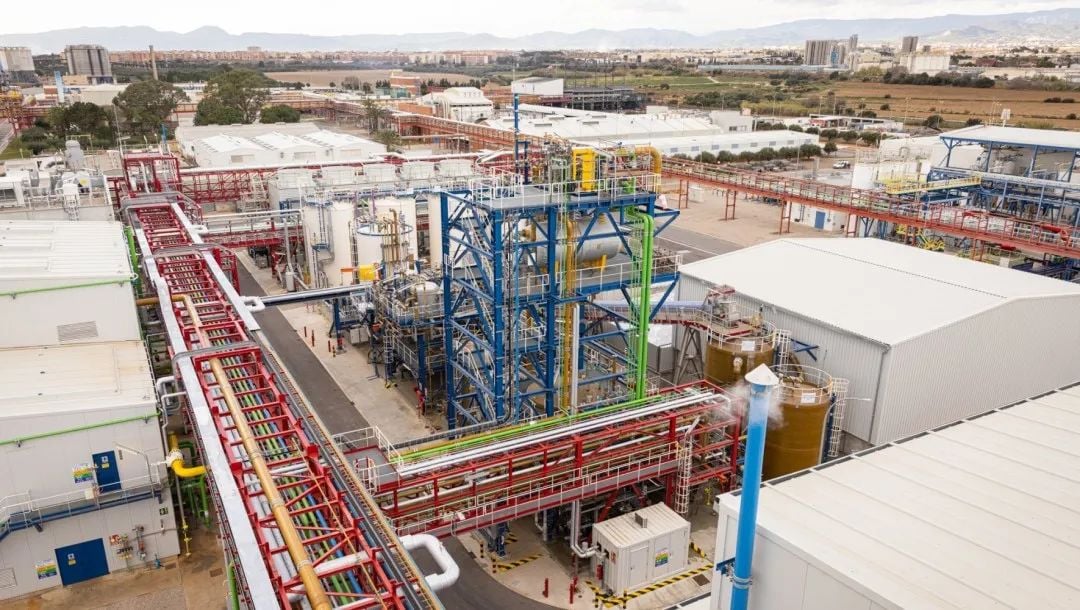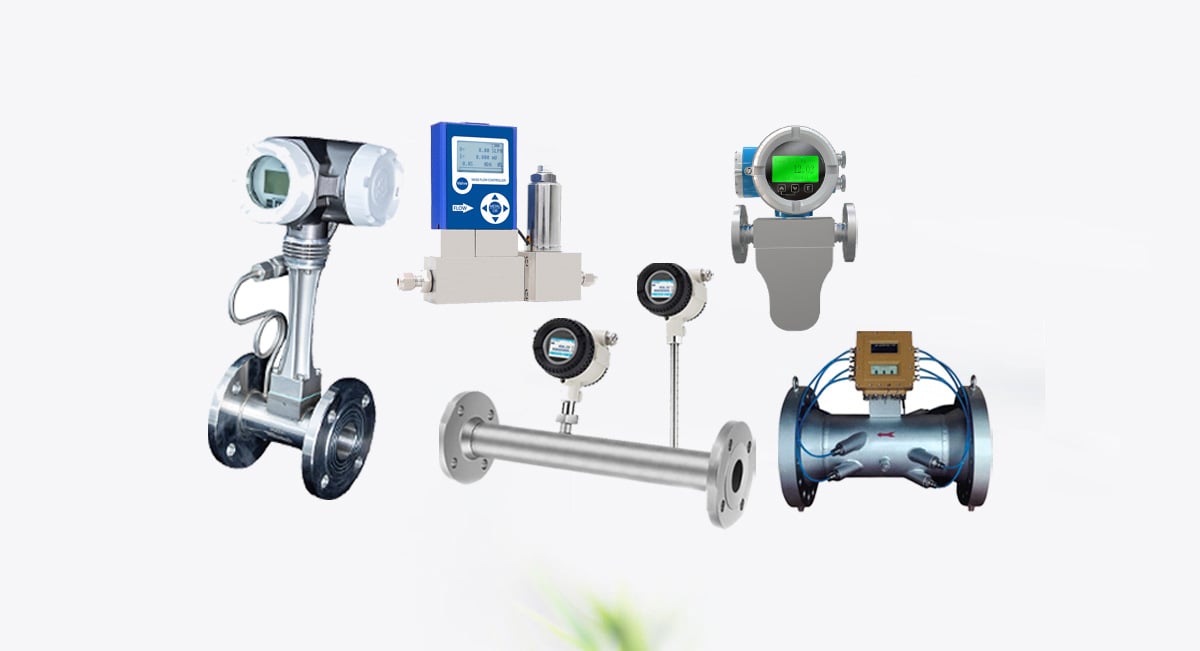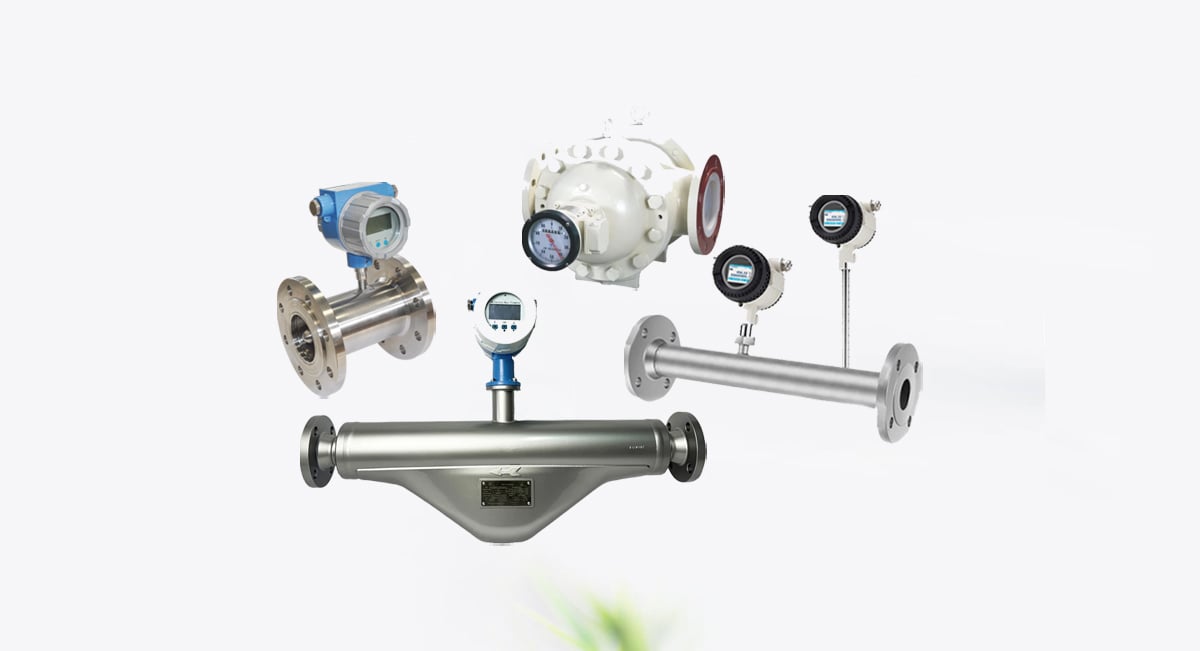Chlorine (Cl₂) is one of the most widely used industrial chemicals in water treatment, chemical processing, paper bleaching, and manufacturing. Despite its importance, chlorine is also one of the most challenging and hazardous substances to measure accurately. Its corrosive nature, toxicity, and sensitive phase behavior require specialized flow meter technologies and carefully selected materials.
For engineers and plant operators working with chlorine gas or liquid chlorine, choosing the right flow meter is essential for both process accuracy y operator safety. This article explores what chlorine is, its combined physical/chemical characteristics & measurement challenges, and how to select the most suitable chlorine flow meter for industrial applications.
Índice
What Is Chlorine?
Chlorine is a greenish-yellow, highly toxic gas at room temperature. It belongs to the halogen group and is naturally a diatomic molecule (Cl₂). Industrial chlorine is produced primarily through the electrolysis of brine (saltwater) and is supplied either as compressed gas or as liquefied chlorine under high pressure.
Common Applications of Chlorine
Chlorine plays an important role in:
- Drinking water and wastewater disinfection
- Production of PVC and other chlorinated chemicals
- Pharmaceutical and fine chemical synthesis
- Pulp and paper bleaching
- Food processing sanitation
- Semiconductor and electronics manufacturing
Despite its broad industrial use, chlorine is classified as a hazardous toxic gas, which makes measurement and handling more complex than most industrial fluids.
Characteristics & Challenges of Chlorine
Measuring chlorine flow is particularly challenging due to a combination of its physical and chemical properties. The following highlights the key traits and the effects they have on flow measurement.
1. Highly Corrosive, Oxidising & Material-Sensitive
Chlorine reacts aggressively with many metals and elastomers, and moisture dramatically increases its corrosive power, forming hydrochloric and hypochlorous acids. Materials such as carbon steel, copper, aluminum and standard elastomers are quickly degraded. Therefore, flow meters used with chlorine must be constructed of corrosion-resistant materials (e.g., Hastelloy, Monel, PTFE linings).
2. Toxicity and Leakage Risk
Chlorine gas is extremely harmful even at low concentrations. A leaking flow meter or poor sealing can lead to serious health risks and environmental hazards. Thus, flow meters must offer full-welded, leak-proof construction, and zero dead-volume designs to avoid stagnation and internal corrosion.
3. Phase Change, Density Variability & Flow Instability
Chlorine easily transitions between gas and liquid phases depending on temperature and pressure (e.g., it liquefies at −34 °C under ~6.8 bar). These transitions cause density shifts and two-phase flow, which many conventional flow meters cannot handle reliably. Additionally, temperature and pressure changes affect velocity profiles, causing measurement drift.
4. High Pressure & Temperature Variation
Chlorine systems may operate under elevated pressures and varying temperatures. The piping, instrumentation and flow meter must all cope with dynamic shifts without degrading accuracy or safety. Temperature fluctuations also significantly alter chlorine’s viscosity and density, challenging volumetric flow measurement.
5. Moisture and Contaminants Impact
Even trace moisture or foreign particles significantly accelerate chlorine corrosion, damage measurement internals, and create bubbles or vapor pockets that distort flow readings. Flow meters in chlorine service must mitigate ingress of moisture and resist the effects of contamination.
Because of this complex interaction of chemical aggressiveness, phase change, material degradation, and safety demands, measuring chlorine flow is one of the most demanding applications in instrumentation engineering.
Chlorine Flow Meter Types
When selecting a chlorine flow meter, compatibility with chlorine’s corrosive and hazardous nature must be the top priority. Below are the technologies most commonly used, and those that must be avoided.
Caudalímetro másico Coriolis
A Coriolis mass flow meter is widely considered the most reliable and accurate solution for both gaseous and liquid chlorine.
Advantages of Coriolis for Chlorine:
- Direct mass flow measurement: unaffected by density/temperature changes.
- Suitable for two-phase or unstable flow conditions.
- Full-welded sensor structure → zero leakage.
- Allows special corrosion-resistant materials and full inert sealing.
- No moving mechanical parts, which reduces failure risk in aggressive media.
These features make Coriolis ideal for chlorine applications requiring high accuracy, safety and long-term reliability.
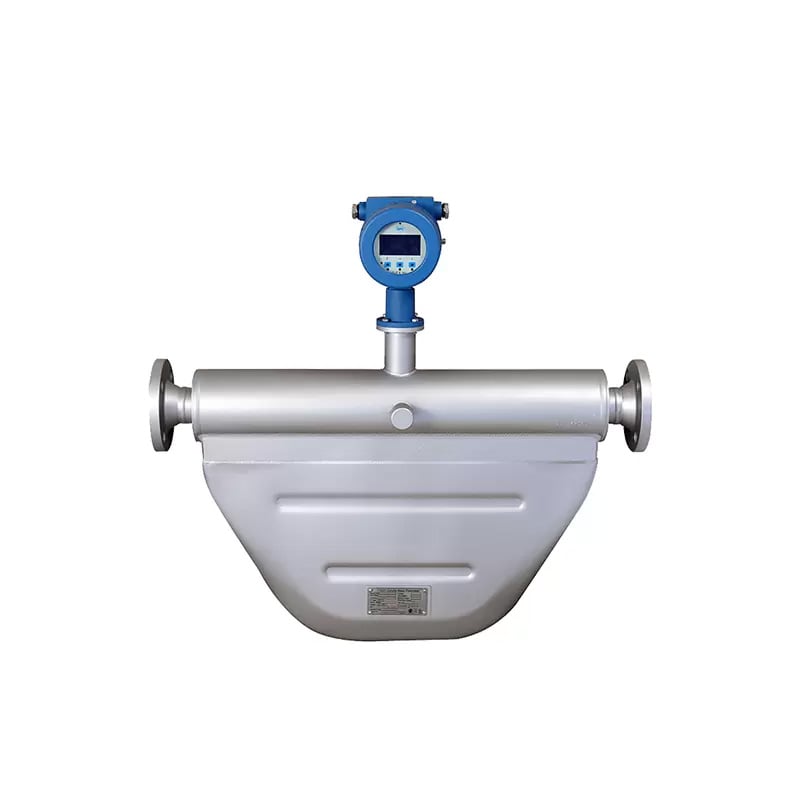
- Alta precisión de hasta ±0,1 %, Buena fiabilidad
- Buenas prestaciones de estabilidad cero y antiinterferencias
- Sin piezas móviles, no requiere mantenimiento
- Comunicación digital múltiple, incluido Hart
If your application flow range is very low, this Coriolis mass flow controller will be your choice.
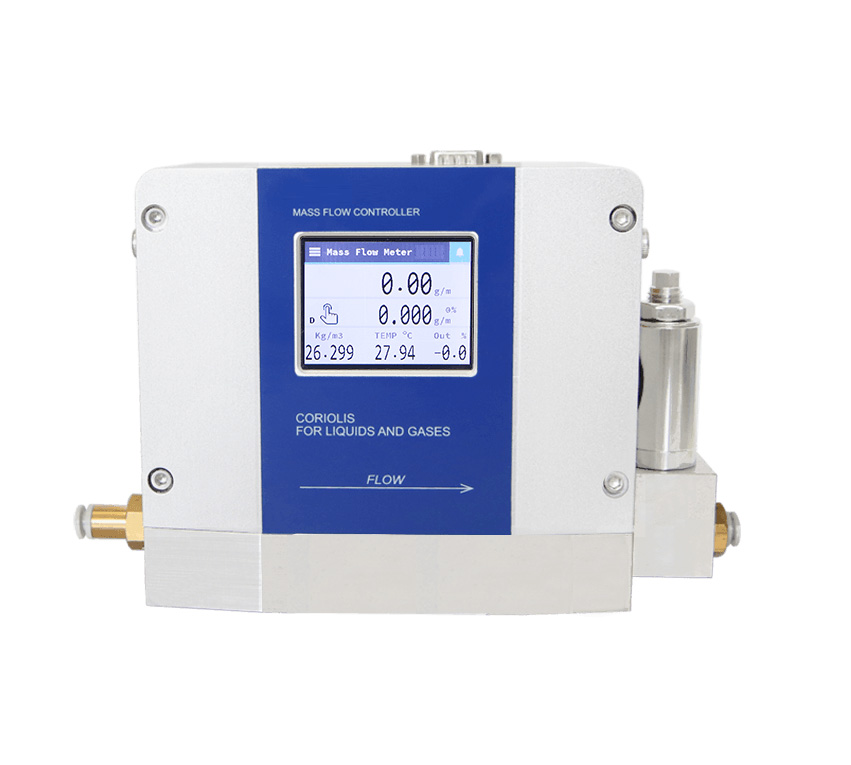
Coriolis Mass Flow Controller for Low Flow Conditions
- Diseñado para la medición de gases / líquidos de bajo caudal.
- Alta precisión, buena repetibilidad. Para líquidos, la precisión de medición puede alcanzar ± 0,25%; para gases, la precisión de medición puede alcanzar ± 0,5%.
- Relación de reducción: 50:1 para controlador de caudal másico digital; 100:1 para caudalímetro másico digital.
- Tiempo de respuesta: regulador de caudal másico<0,2s; caudalímetro másico <0,1s
Thermal Mass Flow Meter (Gas Only, Special Materials)
Thermal mass flow meters can be used only for dry, clean, filtered chlorine gas, and when built with corrosion‐resistant materials (PTFE/PFA sensors, Hastelloy housings etc.).
Strengths:
- Direct gas mass flow measurement, no density or temperature compensation needed.
- Good for low to medium flow gas lines.
Limitaciones:
- Not suitable for liquid chlorine.
- Cannot tolerate moisture or contamination.
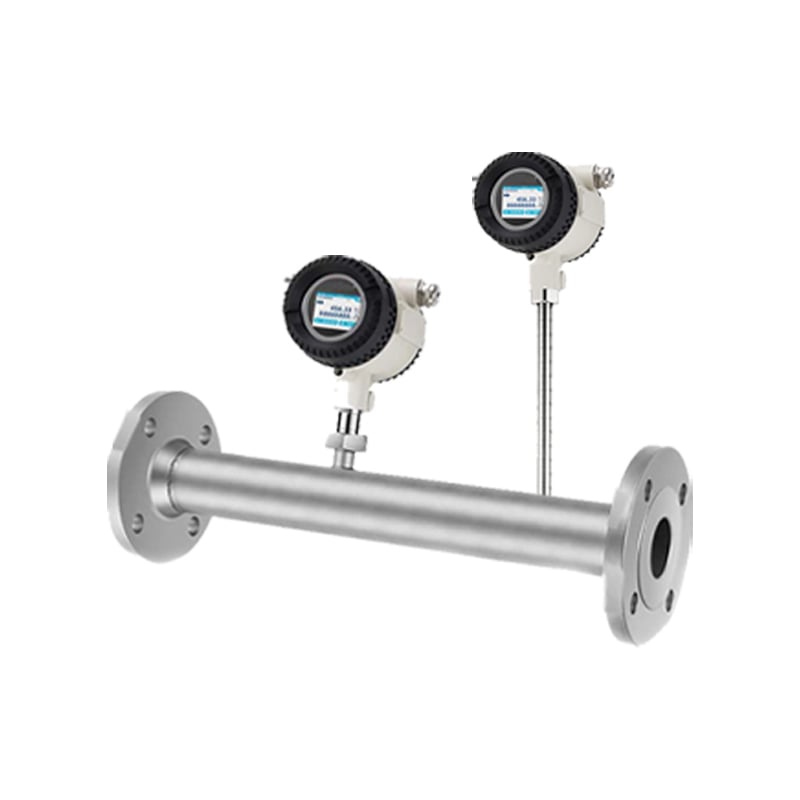
- Clase de protección contra explosiones: Ex db IIC T6 Gb / Ex tb IIIC T80°CDb.
- Relación de reducción ultraancha de 1:2500, el rango de medición es de 0,1 Nm/s a 250 Nm/s.
- Procesamiento de señales totalmente digital, mayor precisión y estabilidad a largo plazo.
- La estructura eléctrica totalmente aislada puede filtrar por completo las perturbaciones de campo.
If your application flow range is very low and the Chlorine is dry and clean, this Thermal mass flow controller will be your choice.

- Diseñado para la medición de gases de bajo caudal.
- Turn Down Ratio: 50:1 for digital mass flow controller; 100:1 for digital mass flow meter.
- Tiempo de respuesta: regulador de caudal másico<0,2s; caudalímetro másico <0,1s
- Medición directa del caudal másico, compensación automática de la temperatura
- Adecuado para diversas tuberías de alta y baja presión.
Metlan Instruments Case Study:
In a recent project, the MTL20FD High Accuracy Thermal Mass Flow Controller was applied in a chlorine plant to provide accurate g/h-level dosing of chlorine gas. The customer was facing:
- The need for high-precision flow control (±0.5%)
- Severe corrosion issues with standard flow meters
- Integration with automatic control systems (4–20 mA DCS interface) The MTL20FD was configured with PTFE sensor surfaces, FFKM seals and direct mass‐flow readout in g/h, delivering improved safety, measurement reliability and process control for corrosive chlorine gas service.
Check the details of the Chlorine flow meter case study here.
Technologies to Avoid / Unsuitable
The following flow meter types are strongly discouraged for chlorine service due to safety or reliability concerns:
- Turbine meters: Moving parts prone to corrosion and failure in chlorine service.
- Positive Displacement (PD) meters: Rotors, seals and internal cavities are vulnerable to chlorine attack.
- Vortex meters or Rotameters: Material compatibility issues, poor accuracy with density changes.
- Orifice/Differential Pressure meters: Material corrosion, phase-change sensitivity, poor performance in two-phase flow.
In chlorine applications, safety and corrosion resistance must take precedence over cost or ease of installation.
Material and Installation Considerations
Material Selection
For reliable chlorine service:
- Preferred alloys: Hastelloy C276/C22, Monel 400, Inconel (with caution).
- Linings / coatings: PTFE, PFA, PVDF.
- Seals: FFKM (perfluoroelastomer), PTFE.
- Avoid: Carbon steel, 304 stainless steel, aluminum, copper alloys, standard elastomers (NBR, EPDM).
Installation & Safety
Flow meters for chlorine must incorporate:
- Full‐welded, leak‐proof construction.
- Minimal dead volume and easy purgeability.
- Certification for pressure ratings beyond expected service conditions.
- Moisture exclusion and filtration upstream to avoid acid formation and internal corrosion.
- Explosion‐proof/ATEX certified electronics if used in gaseous chlorine environments.
Chlorine is one of the most corrosive, hazardous, and technically demanding media for flow measurement. Its combination of aggressive chemistry, phase sensibility, and toxicity create significant challenges for conventional flow meters.
Key Takeaways:
- Chlorine is highly corrosive and toxic, requiring specialized corrosion‐resistant instrumentation.
- Measurement is complicated by phase change, density variation, moisture sensitivity and mechanical degradation.
- Caudalímetros másicos Coriolis are the gold standard for chlorine (both gas and liquid) due to high accuracy, zero‐leak design and material robustness.
- Thermal mass flow meters may be used under limited conditions (dry, clean gas).
- Turbine, PD, vortex, or orifice meters are not suitable due to safety and performance risks.
With proper technology, materials and installation, plants can achieve safe, accurate and durable chlorine flow measurement, improving process control, reducing downtime and enhancing operator safety.

